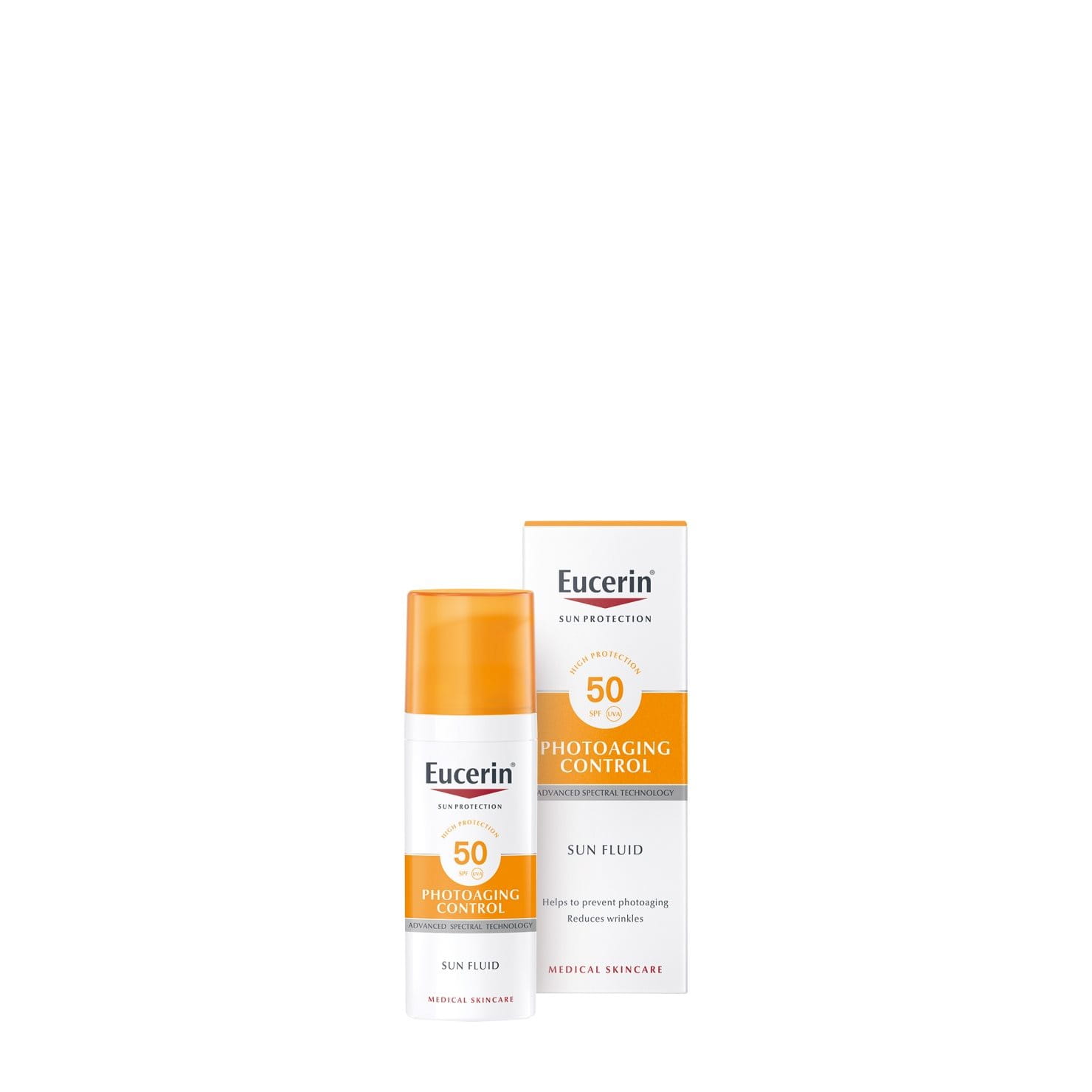Chúng tôi cam kết bảo vệ sức khỏe làn da bạn và tương lai bền vững của hành tinh này.
Giới thiệu
Đọc thêm về sản phẩm của chúng tôi
Những phát hiện chính
How do I know which SPF to use?
Sunscreens are available in four different levels of protection: low (factor 6 to 10), medium (15 to 25), high (30 to 50) and very high (50+). The higher the protection factor the better your skin is protected, but it’s important to apply the product thoroughly (be careful not to miss any bits) and to reapply it generously every two hours.
Can sunscreen clog my pores and lead to breakouts?
Some people with oily and acne-prone skin are concerned that sunscreen will worsen their symptoms and avoid sun protection altogether. Specially formulated products such as Eucerin Sun Gel-Cream Oil Control SPF 50+ are designed to manage oily and acne-prone skin conditions. The ultra-light formula has a sebum-regulating Oil Control technology with L-Carnitine and absorbing micro-particles.
My skin is acne-prone. Do I need special suncare?
Yes. Effective sun protection is essential for all skin types and it’s particularly important for acne-prone skin for a number of reasons:
• To protect against hyperpigmentation: When skin tissue is injured − as is the case with blemishes and acne − an excessive amount of melanin (skin pigment) can accumulate in one area. This surplus melanin remains after the spot has healed leaving a pigmentation mark. These pigmentation marks are particularly susceptible to the sun and the right sun protection will help to prevent them from darkening and becoming more noticeable.
• To prevent skin from drying out: Oily skin still needs moisture. Over exposure to the sun causes it to dry out and the sebaceous glands (which products the sebum that gives skin the oil it needs) go into overdrive. This excess sebum is one of the key stages in the development of blemishes. When skin dries out its external layers harden and this can get in the way of the natural skin-shedding process. Dead skin can build up, block pores and exacerbate acne.
It’s also important to be aware that some acne medication and skin peels can make skin more sensitive to the sun and more susceptible to sun-induced skin damage. Products specially formulated for acne-prone skin, such as Eucerin Sun Gel-Cream Oil Control SPF 50+, will give it the protection it needs. Our product is also ‘non-comedogenic’, which means it doesn’t contain ingredients that might block pores and trigger blemishes.
The ultra-light formula has a sebum-regulating Oil Control technology with L-Carnitine and absorbing micro-particles. It leaves an immediate dry touch finish and a long-lasting anti-shine effect of up to 12 hours.
Why do I need to integrate sun face care into my daily routine?
Facial skin is more sensitive to UVA/UVB radiation and HEVIS light than skin on the rest of the body as it is exposed to sun all year round. Sun protection can help you avoid the cellular DNA damage caused by UV, photoaging (premature aging caused by the sun) and hyperpigmentation. It is important to protect facial skin whenever it is exposed to the sun.
What is the difference between UVA and UVB rays?
UVA rays penetrate the deeper layers of skin. They stimulate the production of free radicals that cause oxidative stress and can lead to indirect DNA damage. UVA rays are most commonly associated with photoaging (premature skin aging caused by the sun). They can also trigger sun allergies such as Polymorphous Light Eruption (PLE). UVB rays can also provoke allergies, but to a lesser degree.
UVB rays provide the energy your skin needs to make Vitamin D and stimulate the production of melanin which is responsible for tanning. They don’t travel as deeply as UVA rays, penetrating only the outermost layers of skin, but they cause more immediate damage such as sunburn. UVB rays are directly absorbed by cellular DNA which can lead to skin diseases such as actinic keratosis and skin cancer.
Both types of UV rays can induce hyperpigmentation and may contribute to conditions such as sun spots (also known as age spots) and melasma.
Đọc thêm các bài viết liên quan










